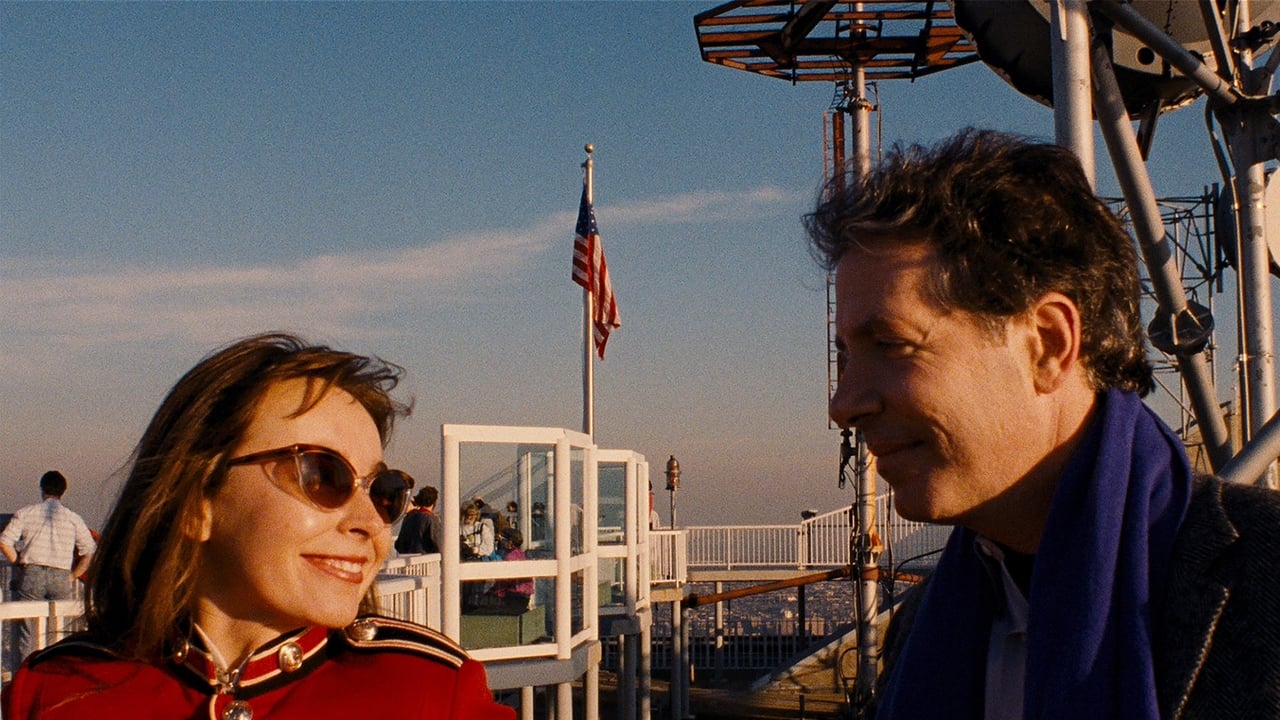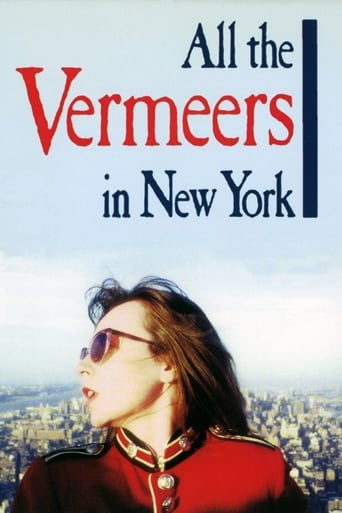



Good concept, poorly executed.
Instead, you get a movie that's enjoyable enough, but leaves you feeling like it could have been much, much more.
View MoreIt is neither dumb nor smart enough to be fun, and spends way too much time with its boring human characters.
View MoreThe movie really just wants to entertain people.
I want to echo what was said in a few above reviews about the litany of boring visuals that stretch across the length and breadth of this gawdawful movie. What I remember most clearly is that a large portion of the movie shows a view of the back of one or another character's head as that character looks at something, such as the sky from the WTC observation deck or a Vermeer painting in the Met. It's literally the "let's look at the back of someone's head" movie. Who thought that would be interesting?Then, for a climax, a character you couldn't care less about bleeds from his ear in a phone booth. When someone asks me what's the worst movie I ever saw, I often cite this one.
View MoreI'll use a scene from the movie to illustrate my problem with it: at some point we get a tracking shot starting from a girl reading a book, across her room over various objects of interest, bedsheets, Nike shoes thrown on the floor, a Cosmopolitan, then we hear stifled sobs off screen and we track back to the girl, now crying. The camera-work is beautiful, it's the slow sensual gliding that feels like choreography for a ballet ensemble or maybe like someone's hand slipping under the hem of a skirt, but I find the points of interest it brings together and the suggestions that emerge in this linking (in Jost's cinema as a whole or at least based on what I've seen) superficial and labored.Whereas in Frameup Jost's experimental technique got in the way of characters with a potentially interesting story waiting to be told, here I had the opposite reaction, interesting form beind sidetracked by flat uninteresting characters, possibly a story not worth the telling. The movie inhabits the lofts and galleries of Soho, the world of MoMa exhibitions and small coffee shops, its girls are sweet shy and cultured, they want to be actresses or sopranos and they care enough about the rainforest to call daddy and yell at him for bying stocks of gum companies in their name, and it's never quite clear where Jost sees himself in all this. His characters are self-involved and egopathic but his criticism against them is not as scathing (or as obvious) as in Frameup. The two male characters we see in the film are curious prototypes, the one is the angry artist throwing a temper tantrum because his agent won't lend him money, the other is the mature love interest, the stockbroker in the white horse come to sweep the young French girl off her feet.Of course it doesn't quite work this way, and it neither does for the movie. The story takes place in New York but it's not Woody Allen's Manhattan, it's not so much about finding or losing love, romance or even alienation, as it is about obligation, about our right to not be obliged to be anything if we don't want it, not even good or loyal or in love. The movie has the feeling of walking inside an art gallery, with some of that quality quiet and alert in the same time, with something cold and irrevocable like you're sitting on a bench and you can hear the echo of someone else's footsteps reverberating from a different room (they stop and it's quiet and then you can hear them again), punctuating the story with long neat tracking shots over polished mahogany floors and in endless dervish circles around marble pillars, with symmetrical shots arranged in orderly patterns, but Jost delivers his thing with perhaps a little too much minimalism, like he's too proud and 'left-field' to dramatize properly, so that even the premise of his movie slowly begins to hide from it.In the end Jost has to go looking for his premise. He finds it curled up in a dark corner of the museum, panting and naked, and he brings it kicking and screaming to the light. Our female protagonist begins narrating "the point of the movie" and Jost is literally speaking through her, hammering home an indifferent point in outrageous explanatory fashion, like all the subtlety of nuance that came before were but tools of their own destruction, so that we have 98% of a movie that is too vague and transparent and 2% that is anti-tank steel 5 inches thick. Maybe this is Jost the frustrated artist, who wants every last one in his audience to get him or maybe it was all an essay and he simply feels the need to conclude. From the tug-of-war between very carefully designed stylization and improv feel of acting and story, I think that Jost captures nice images, but he's not a storyteller.
View MoreJon Jost impressed me quite a bit with this. I'll definitely need to check out more of his stuff. The way he combines very formal camera-work with naturalistic, improvisational performances struck me as really great. Best of both worlds, as it were, yet the styles didn't clash at all. I found it had all the life and spontaneity of, say, a Cassavetes film, but without the kind of off-the-cuff hand-held cinematography I've come to expect from that sort of film. It reminded me more than a little of Antonioni, actually. It also managed to be very funny in a great, observational kind of way. It actually really amazes me how it captures that little spark of life, that nuance, while at the same time being visually so thought-out and impressive to look at (with lots of nice breaking of the 180-degree rule too). Unfortunately the DVD transfer I saw was not the best, so i felt like i wasn't quite getting the full experience. Also, a few slightly indulgent moments (though nothing intolerable or even much different from the more trying moments of Angelopoulos or Carlos Reygadas) left the film less than perfect, along with an ending that I felt didn't quite come off the way it should have.
View MoreIf you are a fan of independent and innovative filmmaking, this movie is for you. It's visuals are tremendous in their composition, movement, colors, etc. It's sense of editing and story progression is involving and thought provoking. This is the kind of movie that makes you forget traditional narrative expectations of "what will happen next?" or questions like "what is going on?" and instead prompts you to just experience, perceive, and feel the film. A must-see for anyone interested in non-traditional filmmaking and for anyone interested in a beautiful movie.
View More